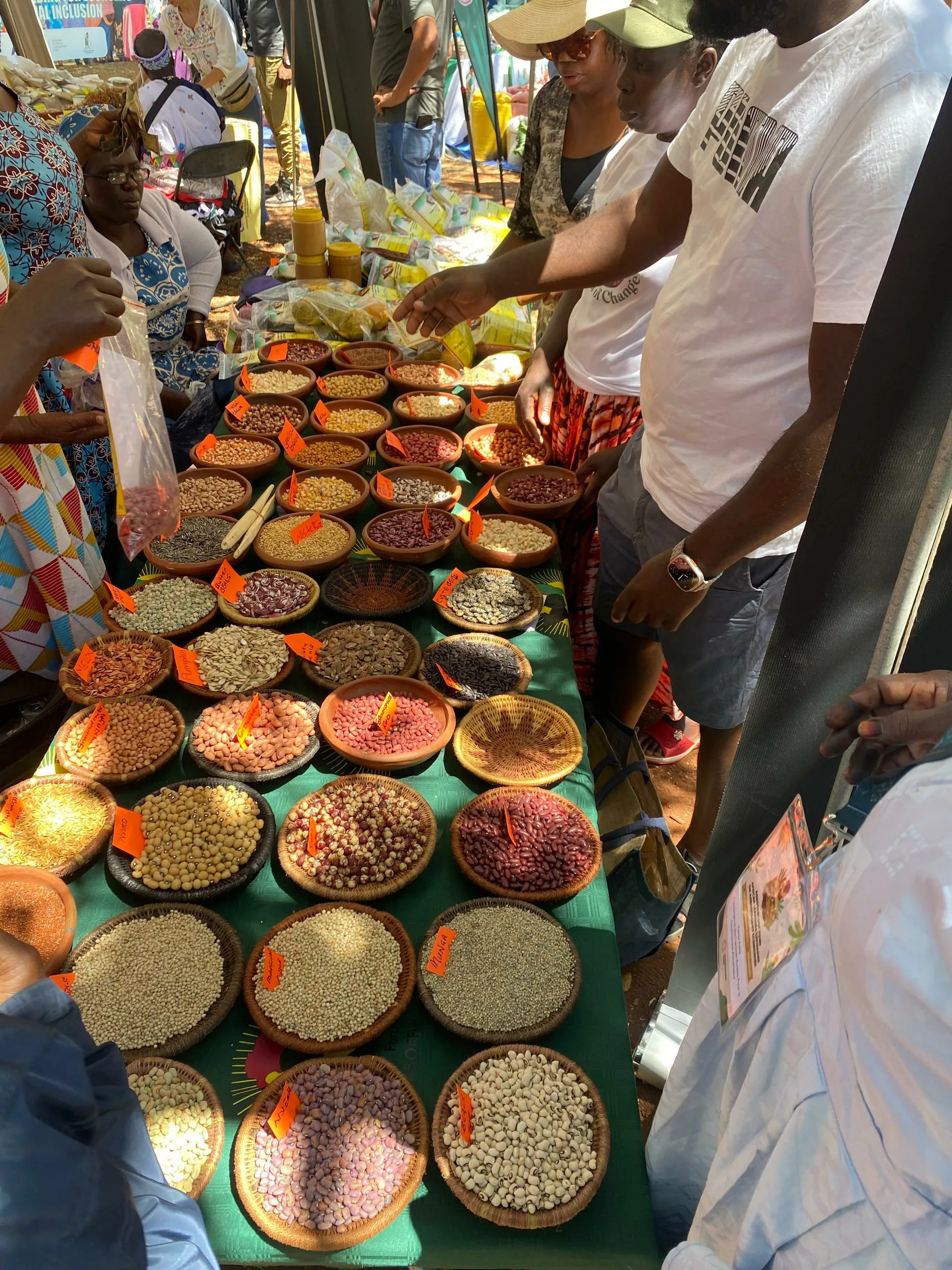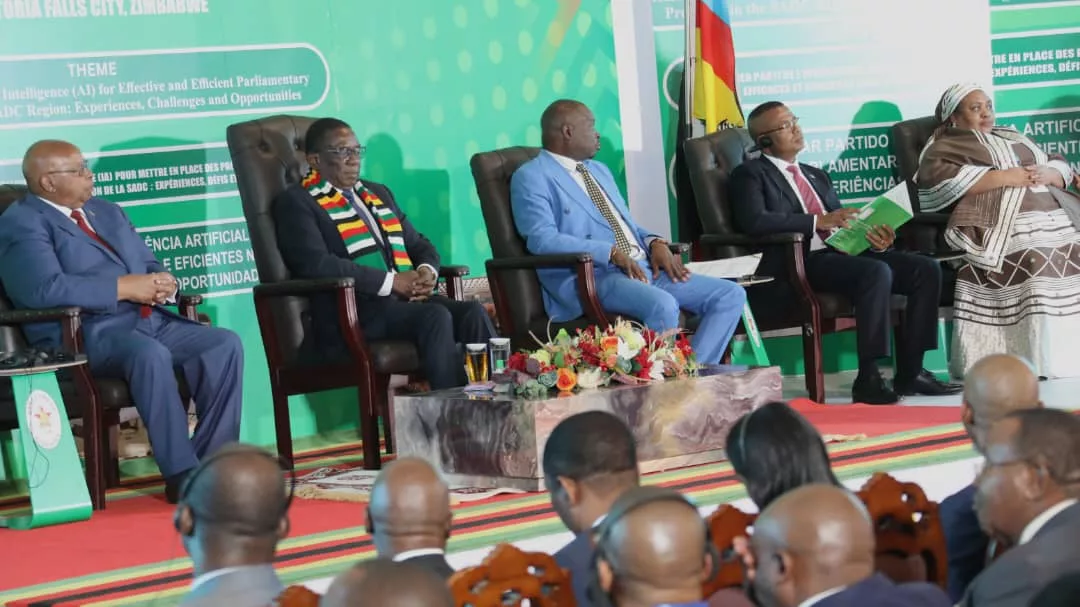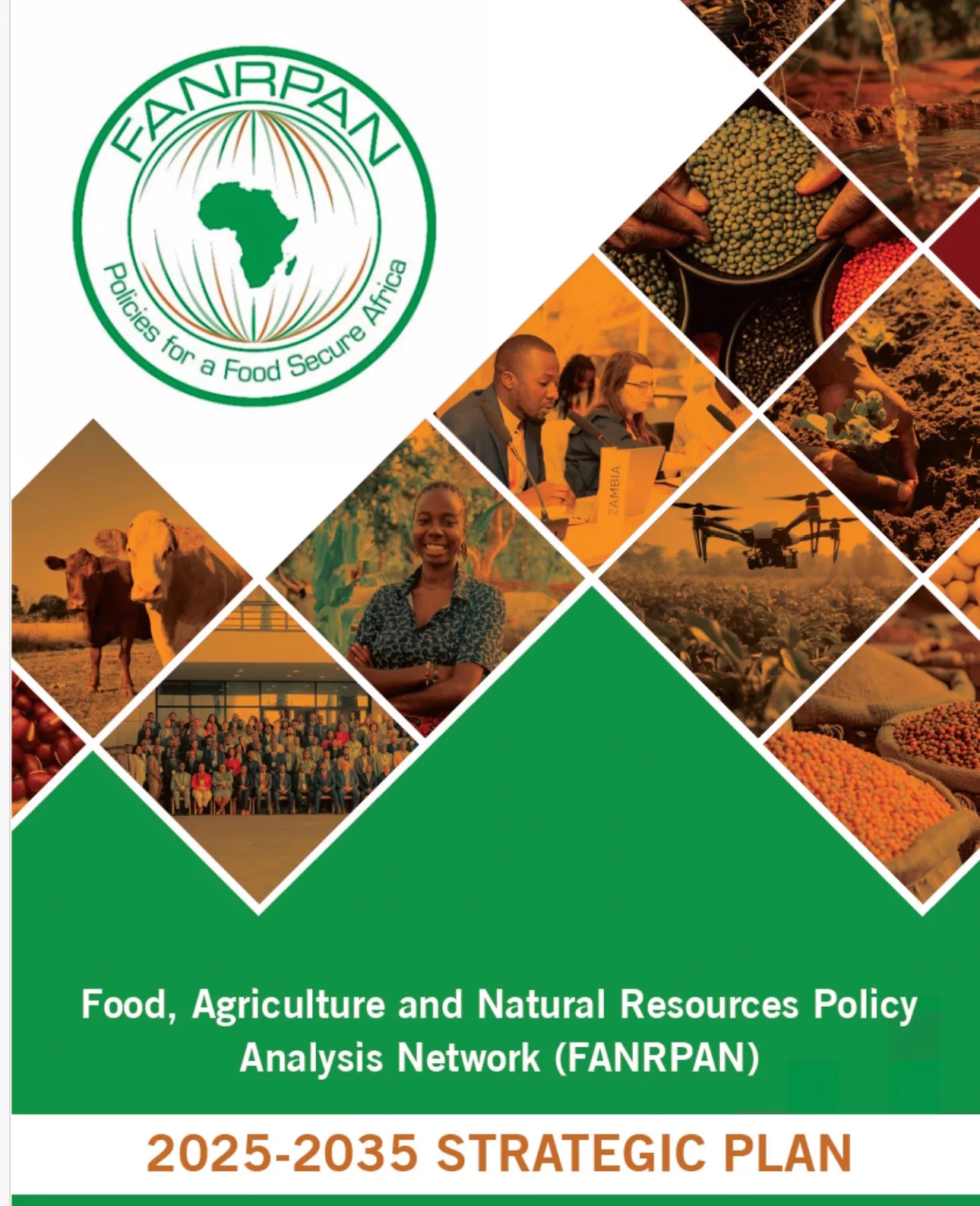|
Getting your Trinity Audio player ready...
|
Writes Lloyd Rabaya
Guitars, drums, and throats soothed the ears, plenty of seed varieties were on display, and lots of food was prepared for sale to visitors as farmers exhibited at the Good Seed and Food Festival held in Harare at Botanical Gardens. Farmers from across Zimbabwe converged at the Botanical Gardens “Celebrating the resilience and diversity of Zimbabwean foods,” as read the theme.
The farmers were exhibiting and exchanging various traditional seed varieties which some farmers had perceived extinct.
“The festival is of paramount importance because we exchange seeds and that revives the seed other parts of the country had deemed oblivious. Also, some children do not know these seeds and might not even want to eat them, so such a festival is there to show them how valuable the food is,” Revai Madimutsa (47), a member farmer of the Zimbabwe Smallholder Farmers Forum (ZIMSOFF) said.
Also available were farmers from neighbouring countries, including Zambia and Malawi. The farmers acknowledged that due to climate change, the diversity of traditional seeds will leave the farmer with something to eat no matter how bad the season will be.
Greshiam Marko (34) a smallholder farmer from Lilongwe, Malawi told this publication that events like the Festival are important as they urge farmers to implement farming practices that conserve the environment. He also added that this year’s edition was of paramount importance to him as he exchanged seeds with the Zimbabwean farmers.
“I have seen different types of crops which we do not have in our country and I had to take some to Malawi to cultivate them as they can help in our communities in terms of food security and good nutrition,” he said.
Besides seed exchange, Marko reiterated that knowledge sharing was also an integral part of the festival. He also highlighted that since Malawi, Zambia, and Zimbabwe declared drought a state of national disaster, smallholder agroecological farmers sharing knowledge would be an important instrument to alleviate the disaster.
Like most Zimbabwean smallholder farmers, Marko also practices conservatory farming methods that include, but are not limited to water harvesting, crop rotation, intercropping, forestry, and fruit production.
Bevis Mushimbwa (47) from Zambia, dovetailed with Marko and highlighted that the festival helped in bringing back the farming knowledge that has been passed from one generation to another which also helped in sustaining the environment. Mushimbwa also practices agroecology which does not recommend the use of synthetic fertilizers or any chemicals but organic manure and other natural mechanisms.
“Those methods that the older people were using were friendly to the soil. This visit to Harare has taught me a lot about things I did not know about agroecology like crop production, aquaculture, and beekeeping. In agroecology, from a small portion, you can get a very big yield,” he said.
Mushimbwa added that his fellow farmers agreed to practice intercropping on their small pieces of land, which ensures food security and good nutrition.
The festival, according to the ZIMSOFF National Chairman, Delmah Ndlovu, creates seed diversity in farmers which is essential in the fight against hunger and starvation, learning from others, as well as adding something to the farmers’ pockets.
“In the coming years, as we grow we would want those who practice small livestock production to bring it here for exhibitions because that is the food we want. From when we started, there were about five organisations. Now, we are happy that it is growing each year and we are making a difference,” he said.
In his address, the Deputy Minister of Lands, Agriculture, Fisheries, Water and Rural Development, Honourable Davis Marapira, highlighted that embracing the traditional food systems can be a path for sustainable farming practices not only to honour the past but also to create a sustainable future.
“We must also recognize the importance of diversification in our diets. Traditional African foods are rich in nutrients, flavours, and biodiversity. By promoting local crops and indigenous ingredients, we can safeguard our food systems against the many uncertainties we face while enhancing the health of our people,” read part of his address.
The Good Seed and Food Festival is an annual event to promote sustainable agricultural practices including agroecology to enhance food security and build resilience in farmers against climate change.






